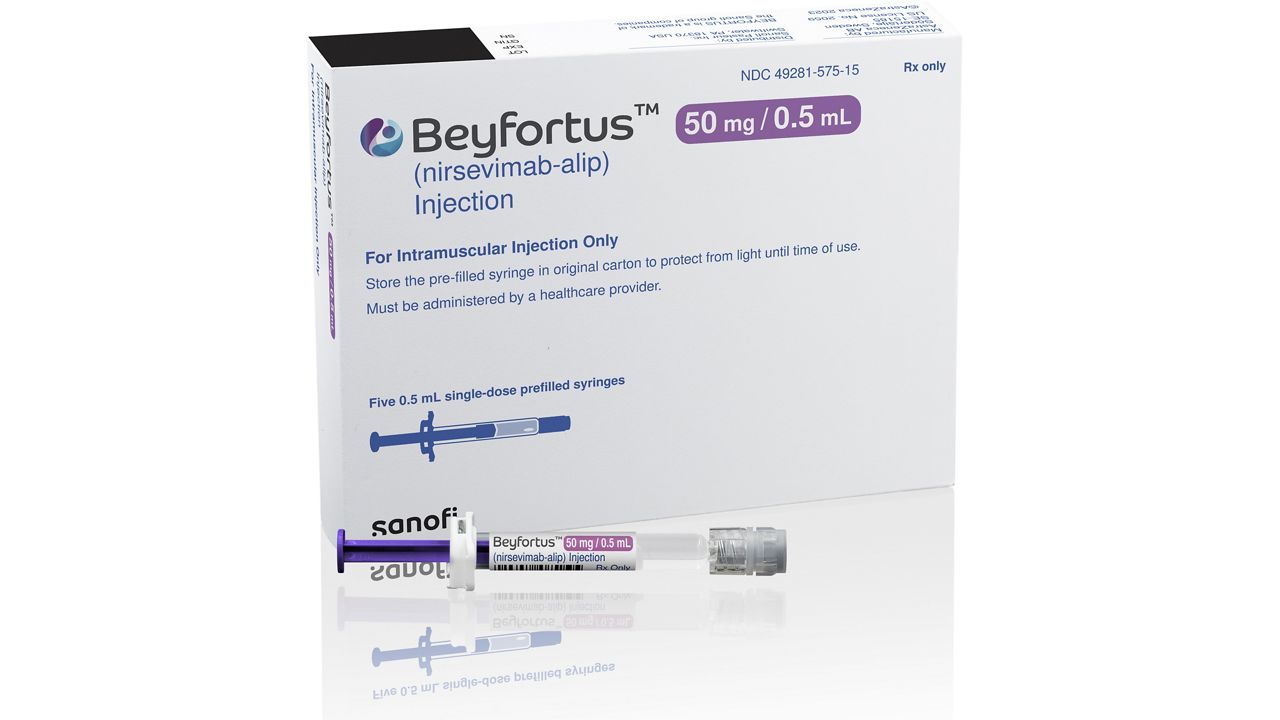Infants should get a recently approved drug to protect them against a respiratory virus that sends tens of thousands of American children to the hospital each year, U.S. health officials said Thursday.
What You Need To Know
- U.S. health officials are recommending that babies get a recently approved drug to protect them against a respiratory virus
- An infection with RSV is a coldlike nuisance for most healthy people, but it can be life-threatening for the very young and the elderly
- An expert panel for the Centers for Disease Control and Prevention on Thursday endorsed the one-time shot for infants born just before or during the RSV season and for those less than 8 months old before the start of the season
- The CDC director later signed off on the recommendation
An infection with RSV is a coldlike nuisance for most healthy people, but it can be life-threatening for the very young and the elderly. There are no vaccines for babies yet so the new drug, a lab-made antibody that helps the immune system fight off the virus, is expected to fill a critical need.
The drug, developed by AstraZeneca and Sanofi, is expected to be ready in the fall before the RSV season, typically November through March. In the U.S., about 58,000 children younger than 5 are hospitalized for RSV each year and several hundred die.
A panel of outside advisers to the Centers for Disease Control and Prevention recommended the one-time shot for infants born just before or during the RSV season and for those less than 8 months old before the season starts. They also recommended a dose for some 8- to 19-months-olds at higher risk of a serious illness from RSV.
The CDC director signed off on the panel's recommendations later Thursday.
"We had a terribly bad RSV season last year and I'm thrilled that we have a new tool to protect our infants," Dr. Mandy Cohen told The Associated Press earlier this week.
The drug, to be sold under the brand name Beyfortus, is expected to cost $495 per dose, and to be covered by insurance. Panelists acknowledged that it will be a challenge at first to give the shot and for providers to be reimbursed by insurers.
In May, the Food and Drug Administration approved two RSV vaccines for older adults from GlaxoSmithKline and Pfizer. In August, the FDA is expected to make a decision on approving Pfizer's vaccine for pregnant women, with the aim of passing along protection to their newborns.
Although the new drug is not a vaccine, the expert panel also supported including it in Vaccines for Children, a government program providing free immunizations. The American Academy of Pediatrics is urging hospitals to stock Beyfortus so that newborns can get it during RSV season before they go home.



